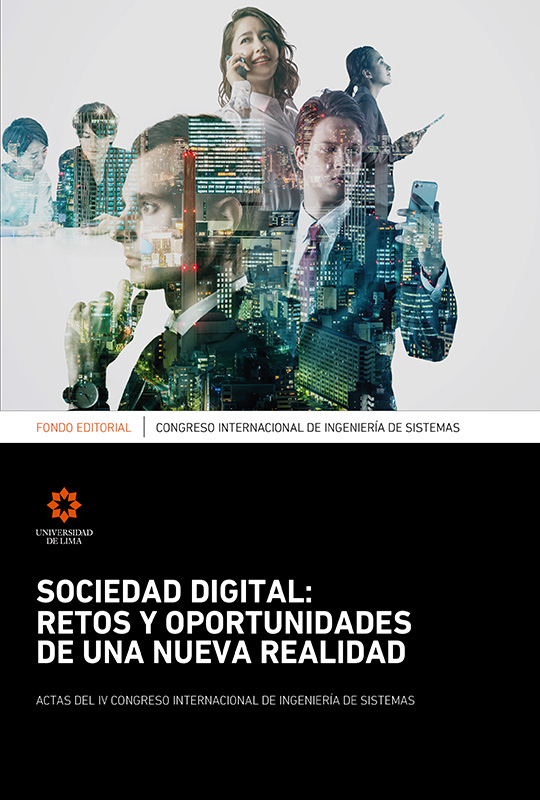Competencia en seguridad como parte integral del enfoque de aprendizaje basado en competencias: experiencia rusa y europea
DOI:
https://doi.org/10.26439/ciis2021.5581Palabras clave:
competencia, enfoque basado en competencias, competencia en seguridad, economía digitalResumen
A partir de finales del siglo xx, los estándares educativos han ido cambiando y muchos países han pasado del enfoque tradicional al basado en competencias. A pesar de los numerosos trabajos sobre el tema, aún no existe una definición estandarizada de competencias y sus componentes. El estudio de las competencias, incluidas las nuevas competencias digitales, es necesario porque la educación en el marco del enfoque por competencias ayuda a reducir la brecha entre la teoría y la práctica, lo que permite formar especialistas preparados para trabajar en una nueva era digital, donde una de las principales tareas es la formación de la economía digital. La economía digital implica el desarrollo y la creación de productos digitales de alta
tecnología dentro del país. La capacidad para operar productos digitales de manera segura se refleja en la competencia en seguridad, que es importante no solo en las actividades profesionales, sino también cuando se usa internet, programas de computadora, etcétera, para fines personales. En este artículo analizaremos diferentes enfoques del concepto de competencia en seguridad dentro del prisma del aprendizaje basado en competencias en Rusia y los países occidentales, incluida la experiencia europea y estadounidense.
Descargas
Referencias
Barragán-Sánchez, R., Corujo-Vélez, M.-C., Palacios-Rodríguez, A. & Román-Graván, P. (2020). Teaching Digital Competence and Eco-Responsible Use of Technologies: Development and Validation of a Scale. Sustainability, 12(18), 7721. https://doi.org/10.3390/su12187721
Bogatyreva, Yu.I. (2013). Competences of Information Security in the Standards of Professional Training of a Teacher. Izvestija Tula State University. Humanitarian Sciences, (3-2), 26-38. [In Russian]
Bordovskiy, G.A., Nesterov, A.A. & Trapitsyn, S.Yu. (2001) Quality Management of the Educational Process. Publishing house of the Russian State Pedagogical University ‘A.I. Herzen’. [In Russian]
Carretero, S., Vuorikari, R. & Punie, Y. (2017). The Digital Competence Framework for Citizens: with Eight Proficiency Levels and Examples. Joint Research Centre of the European Commission. https://doi.org/10.2760/38842
Falloon, G. (2020). From Digital Literacy to Digital Competence: The Teacher Digital Competency (TDC) framework. Educational Technology Research and Development, 68(1), 2449-2472. https://doi.org/10.1007/s11423-020-09767-4
Ferrari, A. (2013). DIGCOMP: A Framework for Developing and Understanding Digital Competence in Europe. Joint Research Centre of the European Commission. https://doi.org/10.2788/52966
Ford, Kate. (2014). Competency-Based Education. History, Opportunities, and Challenges. UMUC Center for Innovation in Learning and Student Success (CILSS). https://www.umgc.edu/documents/upload/competency-based-education.pdf
Gallego-Arrufat, M., Torres-Hernández, N. & Pessoa, T. (2019) Competencia de Futuros Docentes en el Área de Seguridad Digital. Comunicar, (61), 57-67. https://doi.org/10.3916/C61-2019-05
Garafutdinova, G. R. & Soloshenko, L.P. (2013). Technology of Qualimetric Assessment of the Levels of Formation of Competencies of University Students. Modern Problems of Science and Education, 2. [In Russian]
Gusyatnikov, V.N., Bezrukov, A.I. & Sokolova, T.N. (2014). Problems of Formation of Competencies in the Field of Information Security. Regional Information Security, 2(15), 27-31. [In Russian]
Konstantinovsky, D.L., Ovsyannikov, A.A., & Pokrovsky, N.E. (2005). Sociology Development Trends and Sociological Education in Russia. In the World of Russia. Sociology. Ethnology, 1, Moscow (pp.89-119). In Russian
Lasić Lazić, J., Milković, M. & Žigo, I. R. (2020). Digital Competences as Core Competences for Lifelong Learning. In the Materials of the Conference: 12th International Conference on Education and New Learning Technologies, 5911-5915. https://doi.org/10.21125/edulearn.2020.1537
Lebedev, O. E. (2004). Competence approach in education. In School Technologies № 5 (pp.3-12). In Russia Nazmutdinov, V. Ya. & Yusupova G. R. (2013). Competence approach in training. Scientific Notes of the Kazan State Academy of Veterinary Medicine ‘N.E.Bauman’. https://cyberleninka.ru/article/n/kompetentnostnyy-podhod-v-obuchenii. [In Russian]
Nyushchenko, V. G. (2012). On the Readiness of the Teaching Staff to Implement theCompetence-Based Approach in Teaching. Materials of the III International Scientific and Practical Conference, 264-266. [In Russian]
Periáñez-Cañadillas, I., Charterina, J. & Pando-García, J. (2019). Assessing the Relevance of Digital Competences on Business Graduates’ Suitability for a Job. Industrial and Commercial Training, 51(3), 139-151. https://doi.org/10.1108/ICT-09-2018-0076
Pyrkova, T. A. (2015). Competence-Based Approach and Competences in the Assessment of Specialist’s Training. Education and Personal Development: Methods and Practice, (18), 139-143. https://cyberleninka.ru/article/n/kompetentnostnyy-podhod-ikompetentsii-v-otsenke-podgotovki-spetsialista. [In Russian]
Rizza, C. (2014). Digital Competences. In A. C. Michalos (Eds.), Encyclopedia of Quality of Life and Well-Being Research, (pp. 1614-1619). https://doi.org/10.1007/978-94-007-0753-5_731
Sá, M. J. & Serpa, S. (2020), COVID-19 and the Promotion of Digital Competences in Education. Universal Journal of Educational Research, 8(10), 4520-4528. https://doi.org/10.13189/ujer.2020.081020
Tomczyk, Ł. (2020). Skills in the Area of Digital Safety as a Key Component of Digital Literacy among Teachers. Education and Information Technologies, 25, 471-486. https://doi.org/10.1007/s10639-019-09980-6
Tsydypova A. V., Tsyrenova I. B. & Lyubovnikova O. V. (2016). The Concept of ‘Competence’, ‘Competency’, ‘Competence Approach’ in Training. Education and Personal Development: Methods and Practice. https://cyberleninka.ru/article/n/ponyatiekompetentsiya-kompetentnost-kompetentnostnyy-podhod-v-obuchenii. [In Russian]
US Department of Education & National Center for Education Statistics. (2002). Defining and Assessing Learning: Exploring Competency-Based Initiatives, Report of the National Postsecondary Education Cooperative Working Group on Competency-Based Initiatives in Postsecondary Education. National Postsecondary Education Cooperative (NPEC). https://nces.ed.gov/pubs2002/2002159.pdf
Volkov, A., Livanov D. & Fursenko A. (2007). Higher Education: Agenda 2008-2016. Innovative Education and Economy, 12(1), 8-12. [In Russian]
Voorhees, R. A. (2001). Competency-Based Learning Models: A Necessary Future. New Directions for Institutional Research, 2001(110), 5-13. https://doi.org/10.1002/ir.7






